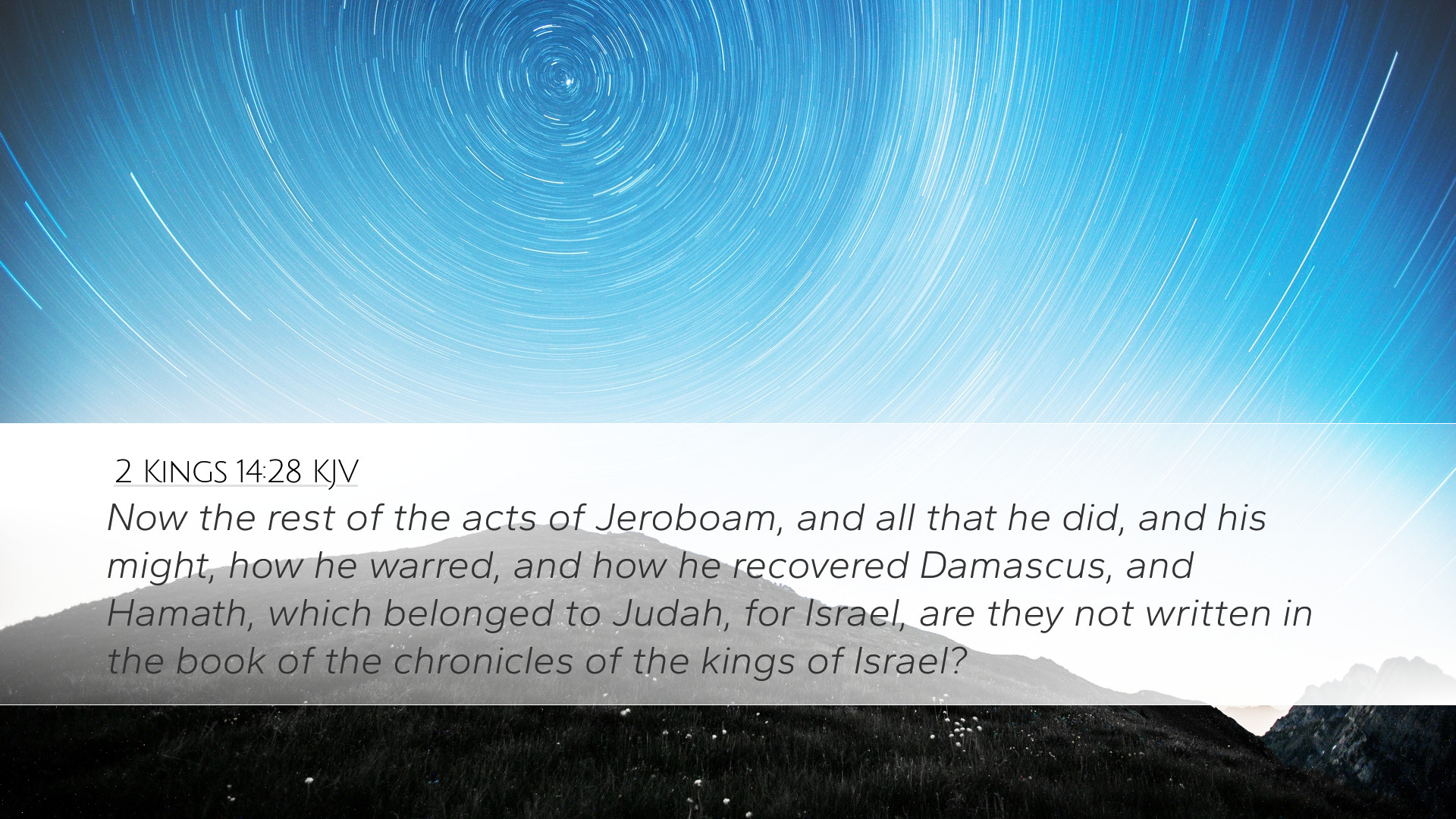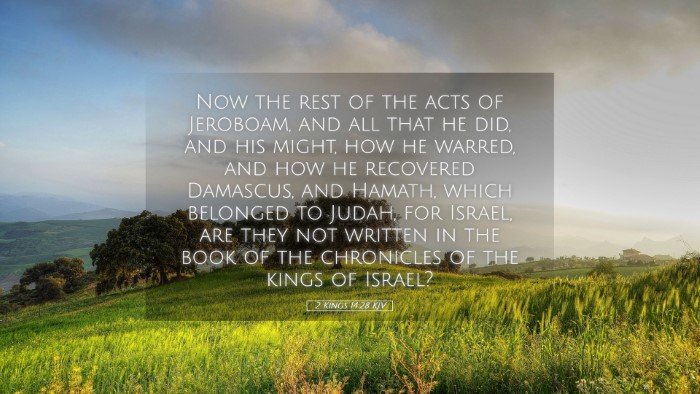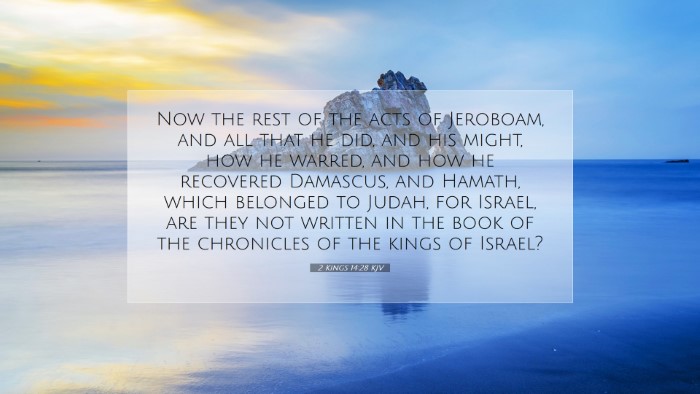Commentary on 2 Kings 14:28
The verse 2 Kings 14:28 states: "Now the rest of the acts of Jeroboam, and all that he did, and his might, how he warred, and how he recovered Damascus and Hamath, which belonged to Judah, are they not written in the book of the chronicles of the kings of Israel?" This verse serves as a concluding remark in the narrative of Jeroboam II's reign and encapsulates significant aspects of his administration and military exploits.
Context and Overview
This verse is situated within the historical account of the kings of Israel and Judah during a period marked by political turmoil and fluctuating power dynamics. Jeroboam II reigned during a time when Israel experienced relative prosperity, yet these external achievements were contrasted by internal spiritual and moral decay.
Historical Significance
The mention of Damascus and Hamath is particularly noteworthy, as these cities were major strongholds that represented the neighboring powers of Aram and Judah, respectively. The recovery of these territories not only highlights Jeroboam's military prowess but also signifies the ebb and flow of Israel's influence in the region. As Matthew Henry reflects, this was indicative of a temporary revival of Israel's dominion portrayed in a time when many of God's people were falling away.
Insights from Public Domain Commentaries
-
Matthew Henry observes that the verse succinctly sums up Jeroboam's achievements and the overall narrative of his kingship. He states that the military victories, particularly the recovery of territory, symbolize the transient nature of earthly power and prosperity which often comes at the cost of spiritual fidelity to God.
-
Albert Barnes notes that the "book of the chronicles of the kings of Israel" refers to an official record that documented the reigns and accomplishments of these rulers. The significance of such records is emphasized as they not only preserve history but also serve as testimonies of God's sovereignty over the nations, illustrating that while men may strive for power, it is ultimately God who determines the rise and fall of kingdoms.
-
Adam Clarke elaborates on the implications of Jeroboam's victories. He points out that the recovery of these territories may be interpreted as a fulfillment of God's promises to Israel in terms of land and victory, yet highlights the paradox of Jeroboam's reign, where outward success was coupled with inner corruption. Clarke warns of the dangers involved in equating material success with divine favor.
Theological Reflections
The verse acts as a poignant reminder for contemporary readers, especially theologians and pastors, that external achievements do not guarantee spiritual integrity or divine endorsement. The visible success of Jeroboam II's reign serves as a lesson about the allure of power and the tendency to prioritize military and economic success over faithfulness to God.
Lessons for Today’s Faith Community
In reflecting upon Jeroboam II's reign as encapsulated in this verse, modern believers are encouraged to evaluate their own pursuits. Are we, like Jeroboam, focused on the gains that can be measured in human terms, or do we seek after the heart of God, prioritizing spiritual growth and integrity over worldly success?
Key Takeaways
- The sovereignty of God: Even in times of prosperity, it is essential to recognize that God's hand is at work, guiding the course of history.
- Temporal versus eternal values: The emphasis on military achievements may resonate with worldly standards but fall short of what is important in the eyes of God.
- Spiritual vigilance: External success should not hinder our call to remain vigilant in spiritual matters; complacency can lead to downfall.
Conclusion
The commentary on 2 Kings 14:28 summons believers to reflect on the life of Jeroboam II and probes deeper into the complexities of power, success, and divine favor. It serves as an invitation to pursue not just temporal victories but a deeper, abiding relationship with God, ensuring that our lives reflect His glory rather than our human accomplishments.


